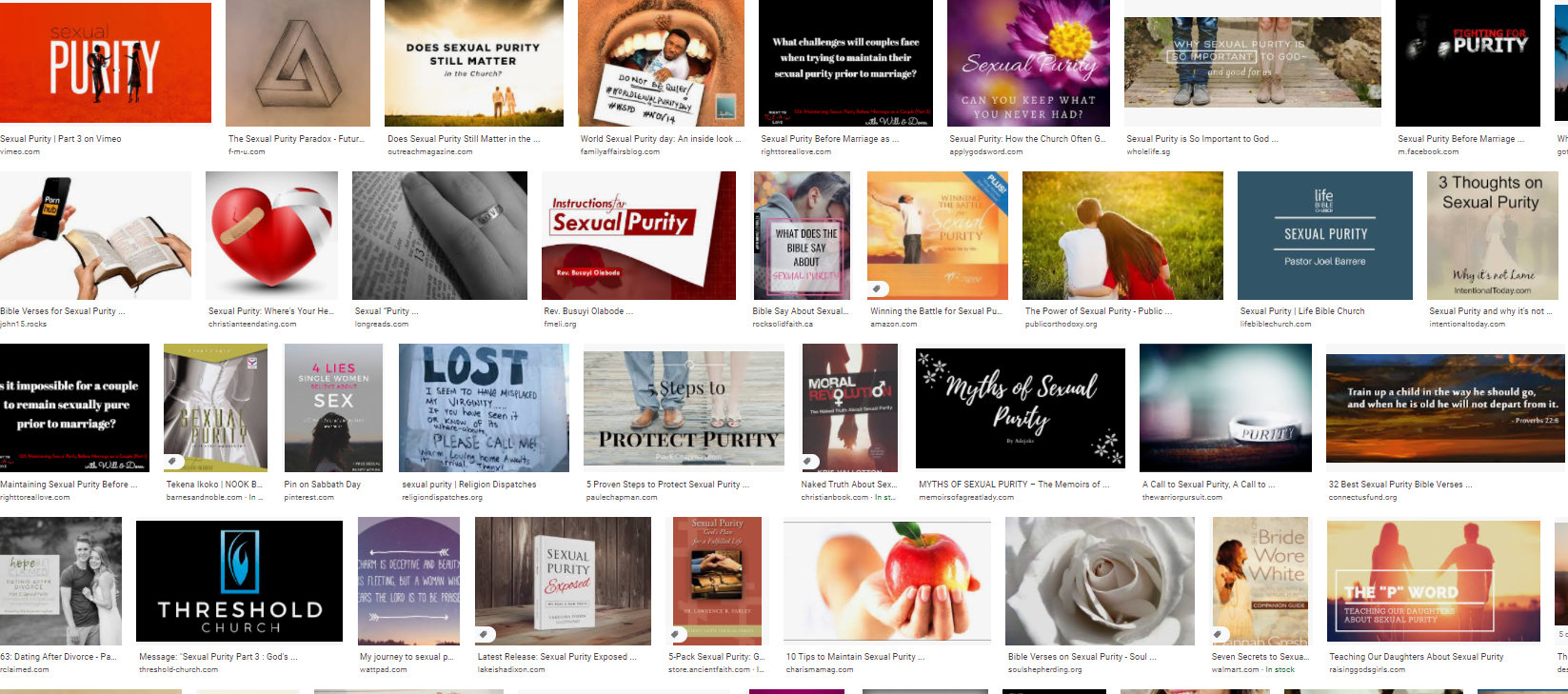
Okay, let’s start with a little Rorschach test. What is the first thing that comes to mind when you hear the words sex and religion ? Not so good. Certainly not like cookies and milk. They just don’t go together very well.
From its inception, Christianity has never been comfortable with the topic of sex. It is important to remember that, when Christianity arose, Roman culture ‘s decadence was at its worst. It is understandable but unfortunate, that to escape its licentiousness, the early church fathers were unable to understand the spiritual aspects of human sexuality and totally separated it from faithful devotion.
Perhaps Christianity’s failure to integrate sexuality into its theology and deal with it realistically was due in part to its expectation of Christ’s imminent return. From that point of view, things concerning the body would be of little concern. However, St. Paul’s discomfort with sex seems to go beyond that. His writings about sex and women are suspect and reveal that he was not actually comfortable with sex at all. For example, he preferred celibacy and only recommended marriage as a way to prevent sexual immorality and deal with sexual desire. (1Cor 7)
For whatever reason, subsequent leaders of the church were never able to fully embrace sexuality in a healthy way. As comedian George Carlin once quipped, the sacrament of marriage was never really able to transform something which was regarded as “dirty” or disgusting into something divine. Sex was largely appreciated for being a means to the end of creating children. (Thomas Aquinas) Little effort was spent extolling the sheer joy of the experience. Worse, church doctrine tended to take natural human curiosity and interest about sex and normal physiological impulses like masturbation, and turn them into mortal sins e.g. having impure thoughts or self-abuse. Indeed, throughout its history, the church has elevated celibacy and sexual purity as the most virtuous and godly state.
I reflect on Christianity’s negative bias against sex in the past because, I, as a pastoral counselor , see the pain caused by religiously induced guilt and shame over sex. Today, the omnipresence of sex in our culture (in advertising and through internet pornography) heightens the conflict. Without positive alternatives to offer, the traditional emphasis on sexual purity is psychologically abusive. The conservative messages are abusive because they give the impression that normal sexual impulses are evil or sinful desires.
Instead of helping folks learn to how to morally and responsibility navigate the choppy waters of the sexual environment found in modern life, the emphasis on purity simply preaches avoidance and condemnation. This attitude exposes the fundamental inability of some churches to understand that sex is not the enemy of faith . Likewise, these beliefs are oblivious to the fact that human sexuality is a vital aspect of a spiritually and psychologically healthy person.
Over the years, the physical abuse of children by clergy has been a terrible reality for many people. Beyond the physical abuse, however, it is clear that the guilt and shame created by ignorant and phobic attitudes towards sex and sexual diversity is an even more extensive and pervasive problem which has been often minimized or ignored.
I first became aware of this problem as a young grad student in divinity school, I worked as a youth director at a local church . At the same time, I was also taking courses in human sexuality from the Yale medical school. I soon realized that many of the church teachings were inaccurate, unbiblical and simply abusive. In working with teens who were guilt ridden by sex, I realized that I wanted to help them and confront the unhealthy doctrines. A significant factor in my becoming a therapist was a desire to help folks who were seeking help for the emotional wounds received from their religion.
Unfortunately, being a minister did not make helping easy. The toxic attitudes associated with the church had prejudiced some against me as a pastoral counselor. When I first started out as a therapist in the late 70’s, clients who were struggling with sexual issues would sometimes shy away from talking about sex knowing that I was also an ordained minister. They worried that instead of being empathic or understanding that I could be judgmental. In other words, some noted that they had had difficultly talking honestly with other ministers for fear of being criticized. Clearly, being associated with religion poses an obstacle for some clients and make it difficult for them to speak freely or to keep it real about sex.
Fortunately, in most situations, listening without judgment overcame the problem. An open atmosphere effectively conveys the message that it’s okay to talk openly about sex in whatever way that it is comfortable for you. It is important to know that for pastoral counselors, just like any other therapist, the purpose of therapeutic dialog involving sex or any other topic is to understand and not to judge or criticize.
Helping folks discover that there are authentic Christian traditions which embrace sexuality in an open and affirming way is deeply rewarding. Watching clients confront and reject harmful beliefs and heal from the trauma that sick doctrines have caused is especially gratifying.
The goal of counseling, then, is not simply to relieve guilt or help to remove shame connected to normal sexual curiosity or practice but also to help individuals and couples integrate their experience of sex and faith into a more fulfilling and joyful experience of life.
Rev. Michael Heath, LMHC, Fellow AAPC 10 1 2020
Image attribution: Rev. Michael Heath computer screen shot of google search of Christianity and purity.



